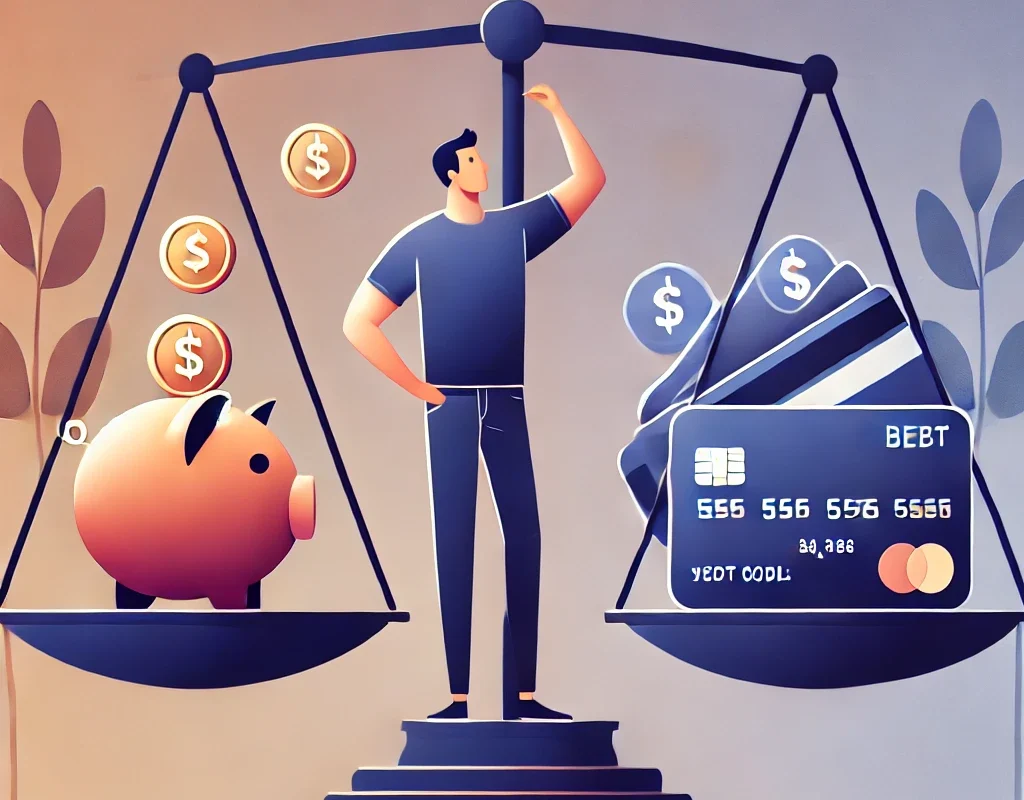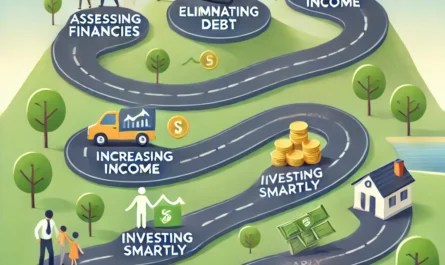Balancing saving for retirement and paying off debt can feel like a financial tightrope. You’re likely juggling two seemingly opposite goals: planning for a secure future while dealing with the realities of debt today. Yet, this balance is essential for achieving long-term financial stability. The key lies in knowing when and how to prioritize each, ensuring you’re not sacrificing one for the other.
In this article, we will explore strategies to help you manage both saving for retirement and paying off debt, ensuring you’re making the most of your financial situation. With a structured approach, you can lay a foundation for a stress-free retirement while escaping the weight of debt.
Understanding the Importance of Saving for Retirement
It’s tempting to postpone retirement savings when faced with pressing debts, but delaying your savings can lead to significant losses down the road. The earlier you begin saving, the more you can benefit from compounding interest, which allows your money to grow exponentially over time. By prioritizing retirement savings, even while managing debt, you ensure that you’re building a financial cushion for your future.
Imagine starting at age 25 with just a small amount, say $100 a month. By retirement age, the magic of compound interest could turn that into a sizeable nest egg. However, if you wait until 40 or 50 to start saving, the money you’ll need to contribute monthly will be significantly higher to catch up.
Why Debt Repayment Shouldn’t Be Ignored
While it’s essential to save for retirement, ignoring debt isn’t a wise strategy either. Debts, especially high-interest ones like credit cards, can quickly spiral out of control if left unchecked. Accumulating interest on unpaid balances adds up faster than many realize, compounding in the opposite direction of your savings.
In some cases, focusing entirely on retirement at the expense of your debt can lead to higher financial stress later on. High-interest debt, for example, can snowball and outpace the growth of your retirement savings, putting you in a worse situation. Balancing both becomes crucial to maintain overall financial health.
How to Prioritize Your Financial Goals
The question remains: which should you focus on first, debt or retirement? The answer depends on various factors, such as the type of debt you hold, the interest rates, and your retirement timeline. If your debt has a low-interest rate (say below 5%), it might make sense to prioritize saving for retirement since investments often offer higher returns.
However, if you’re facing high-interest debt, like credit card debt with rates around 18-20%, paying it off should become a priority. In such cases, the interest on your debt is likely outpacing any returns you’d make from retirement savings.
The Case for a Balanced Approach
Rather than focusing exclusively on one or the other, a balanced approach is often best. This strategy allows you to make progress on both fronts without feeling like you’re neglecting either goal. A common guideline is to allocate a percentage of your income to both—perhaps 70% to debt repayment and 30% to retirement savings, depending on the specifics of your financial situation.
In essence, you’re ensuring that your debt load is shrinking while you’re simultaneously building your retirement fund. This dual-focus approach fosters financial stability over time.
Understanding Your Debt
Not all debt is created equal. There’s “good debt,” such as mortgages or student loans, that typically come with lower interest rates and long-term value, and “bad debt,” like high-interest credit card debt, which often offers no lasting value.
Paying off bad debt should be prioritized because it can severely impact your ability to save. For example, carrying a credit card balance with a 20% interest rate could mean paying double or even triple what you initially borrowed.
Retirement Savings Options: What Are Your Choices?
When deciding to save for retirement while paying off debt, it’s crucial to understand the available retirement options. Accounts like 401(k)s, IRAs (Individual Retirement Accounts), and Roth IRAs offer tax advantages that help your savings grow more efficiently. If your employer offers a matching contribution to your 401(k), take full advantage of it—this is essentially free money that can significantly boost your retirement savings.
Even if you’re paying down debt, ensuring you contribute enough to get the full match should be a priority.
The Impact of Interest Rates on Debt
The interest rates on your debt play a crucial role in determining how quickly you can pay it off. High-interest debt, like credit cards or personal loans, demands more immediate attention, as they accumulate more interest over time. Lower-interest debts, such as mortgages, may not require as aggressive a repayment strategy, giving you more flexibility to save for retirement.
By understanding how interest rates work, you can better prioritize your payments and savings.
Compounding Interest: The Power of Early Retirement Savings
Starting early with retirement savings means you have more time to benefit from compounding interest. This is the interest on the initial sum of money, plus any accumulated interest. Even small, consistent contributions to your retirement fund can grow substantially over time.
The earlier you start, the more your money works for you. Compound interest essentially turns time into your greatest asset in retirement planning.
You Can Also Read : How to Assess Risk Tolerance Before Investing
Emergency Fund: Should It Come First?
Before diving deep into debt repayment or retirement savings, it’s wise to establish an emergency fund. This fund acts as a buffer for unforeseen expenses, such as medical bills or car repairs, and helps you avoid taking on new debt when these situations arise.
Most financial experts recommend having at least 3-6 months’ worth of living expenses saved before tackling other financial goals. Having this cushion can provide peace of mind and protect you from setbacks in your financial journey.



